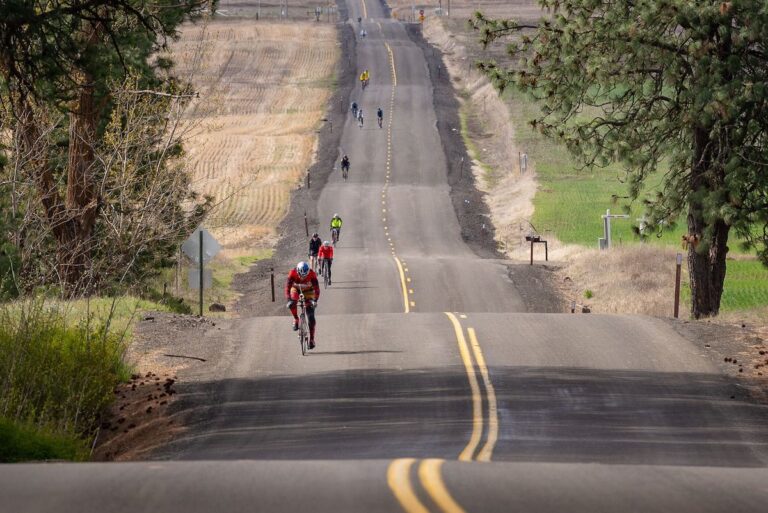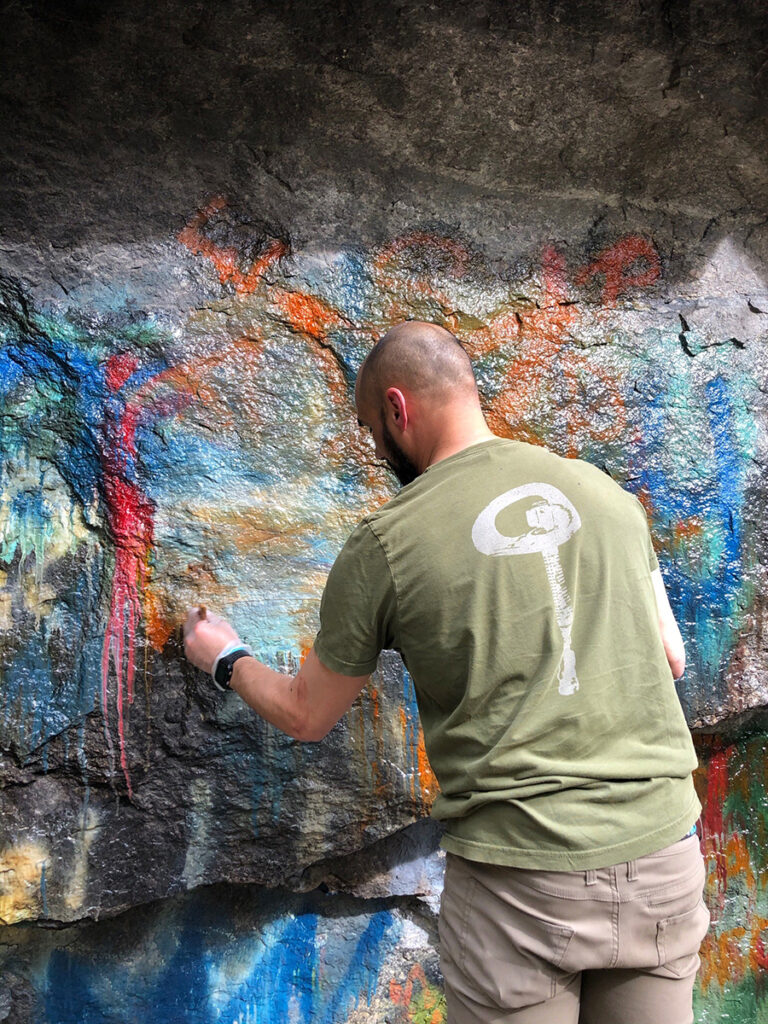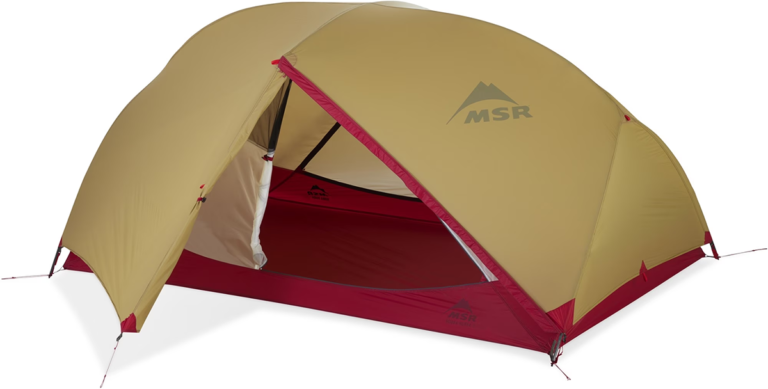“Pronunciation question: Does ‘Iller’ Creek rhyme with ‘miller’ or ‘miler’?” That’s the unassuming question I posted on Facebook last fall, and it was the moment I learned where my active outdoor friends and my grammar geek friends overlap – and sharply disagree.
Confession: Until adulthood, I thought “awry” was pronounced “AW-ree.” I thought “frigate” was pronounced “fri-GATE.” I thought “segue” was pronounced “SEG-yoo.” (Thank goodness for the Food Network, which gave me an early command of “acai” and “quinoa.”) But pronouncing place names, as with people’s names, is more personal. Berries and grains are one thing; my hometown is quite another. Our mangy mongrel of an English language mostly follows but frequently violates the phonics we learned in grade school. As a result, people outside of the Inland Northwest often rhyme “Spokane” with “cocaine.” (Alas, even my beloved Indigo Girls rhymed “Spokane” with “Cascade Range” in one of their songs. Et tu, Amy and Emily?)
Many place names of the Inland Northwest that rebel against phonics have roots in French or one of the American Indian languages. In fact, sometimes those place names exist because of historical interaction between French explorers and Native peoples.
The Idaho State Historical Society possesses a photograph from 1928 that depicts three besuited men squinting in front of a monument twice their height that “commemorates the coming of the first white man to Lake Pend d’Oreille” in 1809, an inscription that compels more of a shudder than a salute. The explorer/geographer/fur trader of note, David Thompson, was actually a Brit by way of Canada, but French fur traders weren’t far behind him. They took one look at the large round earrings that the Native men and women wore and called the people “Pend d’Oreille,” which means “hangs from ears” in French. Incidentally, an aerial view of Lake Pend Oreille shows an ear-shaped body of water.
Thompson and his fur-trading buddies moved on southward, where they encountered indigenous people who called themselves “Schitsu’umsh,” but who Thompson & Co. renamed “Coeur d’Alene,” which in French means “heart of the awl.” An awl is a sharp tool for making textiles, and the French nickname referred to the keen trading skills and experience that the fur traders noticed in the Native people.
Place names amount to more than an assemblage of letters and characters. Like a person’s name, place names tell origin stories that reveal much about human endeavor, atrocity, and inspiration (or lack thereof; I’m looking at you, Forks, Washington). Even when they’re easy to pronounce, plenty of names on a map of the Inland Northwest will either scrunch or raise your eyebrows: Montana has places called Zero and Pray. Oregon includes Idiotville, Boring, Drain, Zigzag and, for a brief time in the 90s, Half.com. You’ll find Spuzzum and Salmon Arm in British Columbia, and Idaho features places called Bliss, Slickpoo, Good Grief and Athol. (“I’m just glad they didn’t name it ‘Penith’,” a friend once joked.)
After a recent map-gazing and roadtrip-fantasizing session, I’d collected several place names that I wasn’t sure how to pronounce – many with hiking and biking trails associated with them. A good way to get people talking is to ask them about where they’re from, so I approached government employees in several counties about how to pronounce place names in their regions. Perhaps they just appreciated a member of the public asking them anything besides how to reduce their parking ticket, but the voice of every single one of the people I spoke with warmed immediately, if nervously, when I opened with, “I have a pronunciation question for you.”
As for Iller Creek? It’s pronounced EYE-ler, rhyming with “miler,” say both Paul Knowles, Park Planner for Spokane Parks and Recreation, and Jeff Lambert, Executive Director of Dishman Hills Conservancy, which helps protect the Iller Creek Conservation Area. Well, sort-of. “I’m not sure that there is a definitive answer,” says Lambert. “I have talked to the descendants of Carl Iller for whom the creek was named, and they disagree on the pronunciation.” As one Facebook friend noted, Iller Creek may be pronounced EYE-ler Creek, but “illiterate,” at least, follows the rules of phonics just fine. Well, except for that last syllable.
Because of their prominence in the Inland Northwest, some place names that are challenging to tourists (see Coeur d’Alene, Pend Oreille and Spokane) are simple enough to navigate for locals. However, once they take blue highways and less beaten paths, even lifelong residents can start sounding like visitors. With apologies to the International Phonetic Association and its time-honored alphabet, here’s a pronunciation guide for some of the less intuitive place names in the Inland Northwest: Palouse (region, city), puh-LOOS; Kootenai (city, county and tribe), KOOT-nee; Tekoa (city), TEE-koh; Kamiak (butte), KAM-ee-ack; Inchelium (place, tribe), IN-cheh-LEE-em; Nespelem (place, tribe), nez-PEE-lem; Sanpoil (region, river, tribe), SAN-poil; Entiat (city, tribe), EN-tee-et; Methow (river, community), MEHT-how; Disautel (place, mountain pass), DIS-eh-tell; Aeneas (community), EE-nee-ehs; Malott (place), mah-LOT; Loomis (place), LOO-miss; Havillah (community), hah-VILL-luh; Mazama (community), mah-ZAH-muh; Monse (community), MONZ; Wauconda (community), wah-CAHN-duh; Similkameen (river, trail), SMIL-kuh-meen; Cedonia (community), seh-DOAN-yuh; Wellpinit (community), WELL-pin-it; Karamin (community), KAIR-eh-min; Kewa (community), KEE-wuh; Laurier (community), LOR-ee-yay; Wapaloosie (mountain), WAH-pah-LOO-see; Tucannon (river, canyon), TOO-kehn-nuhn; Wenaha (river, trail, national forest), wen-AH-ha; Swakane (creek, canyon), swah-KAIN; Feryn (conservation area), FERN; Manresa (grotto), man-REH-suh; Ymir (town), WHY-mer. //












